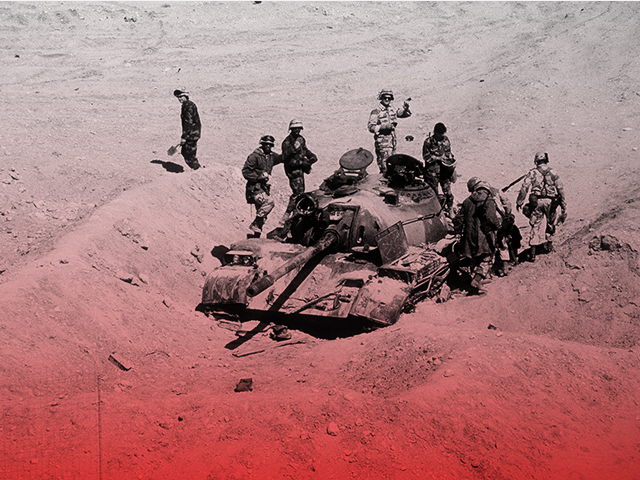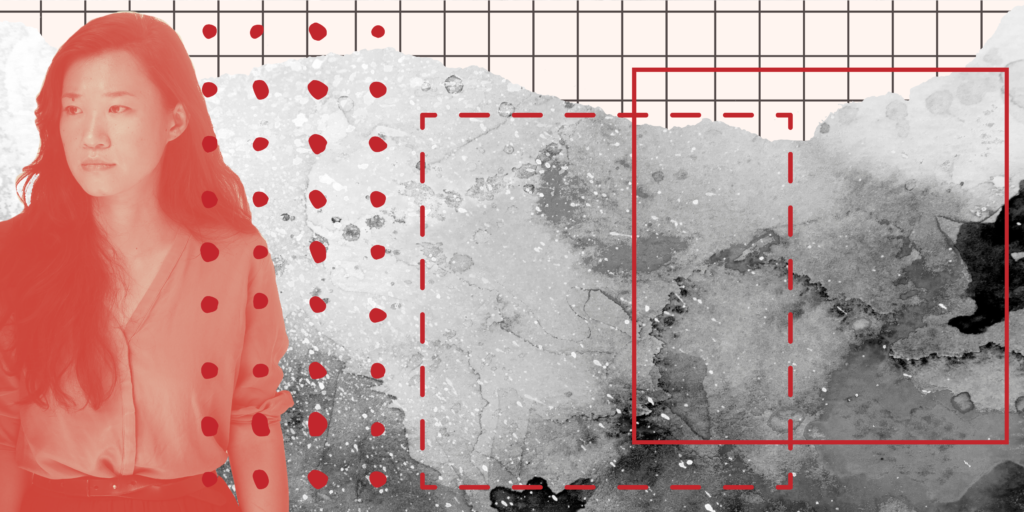Dissecting the violence of state, warfare, and language

November 30, 2016
In America, war comes to us pre-masticated. Through TV news clips, sound bites, and government press conferences, the unruly and ever-expanding violence that our country exacts on the world is made digestible, even palatable. Even the U.S. military’s own casualties went unseen for years when, under George HW Bush, news media were not allowed to photograph soldier’s coffins, which arrived from Iraq and Afghanistan draped in the American flag. “What is the need to show these caskets other than to try and inflame controversy?” questioned one father of a deceased soldier when the ban was lifted in 2009. That soldiers die at war should be a controversy we are all familiar with. Some other controversies: the deaths of those who American soldiers have killed, the bodies of those who don’t get coffins blanketed in flags. It’s the controversial that makes these things harder to swallow. It’s the controversial that sticks in your throat.
What’s being swallowed instead is a myth about America. Like all myths, it’s just a story, the kind you use to put children to sleep at night. It can be told in many different ways, but always has the same message. It goes: America is a country founded on freedom for everyone. It’s a great country, where, if you work hard enough, that greatness will be bestowed upon you. It’s an exceptional country, one that fights hard to help the rest of the world be exceptional too. The truth, of course, is that “everyone” means a select few, that “greatness” is often retained by those same people, and that “help” is usually just another word for imperialism.
America’s imperial project is sprawling. It includes, but is far from limited to, military involvement in Iraq, Libya, Syria, Afghanistan, and Yemen; targeted drone strikes in Somalia and Pakistan; the ongoing support of the Israeli occupation in Palestine; and the surveillance and deportation of Muslim Americans. This organized, global violence is justified by the myth that America is the benevolent patriarch of the world, using tough love to teach its children to embrace democracy and love freedom. But American imperialism isn’t compassionate, it’s vicious. The myth hides that reality, but it can never fully align itself with truth. Stuart Hall argues that it’s when these stories declares themselves equivalent to truth, that they begin to break down: “There is a moment when it always declares itself to be universal and closed … And that is always the moment which, I think, escapes. That’s my hope. Something had better be escaping it.”
What is it that escapes? This is a question that Iranian American poet Solmaz Sharif grapples with in her debut collection, Look. Appropriating the language of the War on Terror, Sharif refuses to let the official state history of the war harden into accepted truth. The book’s title and much of its language are taken directly from the U.S.’s Department of Defense’s Dictionary of Military and Associated Terms, an official guide to the language of modern warfare. “Look,” according to this dictionary, refers to the period in mine warfare when “a mine circuit is receptive of an influence,” which, as Sharif clarifies, is the moment when a mine detonates. Looking, for Sharif, is an act equally as invested with desire as it is with violence. “It matters what you call a thing,” opens the titular first poem, but it’s impossible to stare at these things — the stuff of life during wartime — straight. The poem zigs and zags between personal intimacy and state violence:
Whereas the federal judge at the sentencing hearing said
I want to make sure I pronounce the defendant’s name
correctly;
…
Whereas the lover made my heat rise, rise so that if heat
sensors were trained on me, they could read
my THERMAL SHADOW through the roof and through
the wardrobe …
Violence is folded into intimacy, and that intimacy is in turn disrupted by military threat. For Sharif, these disruptions undermine the relationship between American imperialism and the language of war. The clinical language of the military dictionary makes it easy to forget the lives of those who are affected by war. That’s the disturbing convenience of drone warfare—it allows you to kill a man without ever seeing his face. Sharif, who has called for a “poetry of proximity,” closes the distance between the trigger and the wounded, between language and the body. She makes it impossible to look away. The vulnerability that this intimacy brings makes her feel like a target, but she ends the poem with a clear demand: “Let me LOOK at you in a light that takes years to get here.” It’s a call for clarity, even at a time where that seems impossible. There’s an insistent hopefulness in this line, that the light will arrive someday, but it’s tinged with danger. If LOOKing refers to the moment a mine explodes, it may be safer in the dark.
In the shadows, with what remains, Sharif pieces together her poetics. What goes unsaid is as telling as what is, especially so when language is weaponized by the state. One poem, “Reaching Guantánamo,” is a reverse blackout poem — its blank spaces are not sites of erasure but are purposefully written in by Sharif. The poem is composed of several imagined letters written to Salim Hamdan, a Guantánamo detainee, by his wife. The final lines of the first letter read:
Love, I’m singing that you loved,
remember, the line that went
“ ”? I’m holding
the just for you
These spaces bring to mind the violation of military surveillance and censorship, including the ever watchful NSA and prison censors, but when reading the poem I found myself trying to fill in the blanks. By inserting my interpretations of these empty spaces, the censored letter was somehow made more touching and personal than if it were unmarked. Poetic erasure can “point to the nearly infinite possibilities and infinite centers of a single text,” wrote Sharif in an essay on the subject for The Volta. Erasure by the state is inhibiting, but here, by the poet, it’s liberating.
“There is nothing / that has nothing to do with this,” she writes in “Inspiration Point, Berkeley.” The violence of American empire inevitably trickles down into its language. Poet Kazim Ali writes that “American language has suffered the same way the American body has—by our compulsion towards empire, co-opting and colonizing and suppressing and murdering on a grand and global scale.” Sharif lays bare this relationship between language and empire in “Perception Management: an abridged list of operations,” a poem composed entirely of the names of military campaigns. It’s a strange jumble of Americana (“RODEO • ALOHA,” “SALOON • STALLION RUN”); pop culture references (“UNFORGIVEN • RAGING BULL • THUNDERCAT • MR. ROGER’S NEIGHBORHOOD”); the seemingly innocuous (“BACKPACK • SOCCER BALL • DOCTOR • THERAPIST”); and, given the context, the perverse (“BAGHDAD IS BEAUTIFUL,” “PATRIOT STRIKE,” “GLAD TIDINGS OF BENEVOLENCE”). Ali argues that “[w]e move toward strangeness and wildness in our expression … as a way of finding a zone … untainted by political and military institutions.” Does such a purity exist? “Perception Management” reads like an indictment: it’s all tainted.
“I burned all my notebooks, what good are notebooks? They won’t help me survive,” goes the Talking Heads song, “Life During Wartime.” But in Look, they might be the only way. It’s in writing, or rather, re-writing, the war that survival is made possible. “It is, snarling, what I carve of it alone,” she writes about her “life in the AMERICAN DREAM.” It’s not clear what the end result will be, and perhaps clarity isn’t as useful as the simple act of carving may be. To pick up the knife, to cut back, to insist new ways of being beyond the demands of the nation—these are the lessons of Look. Sharif closes the book with an acknowledgment of empire’s casualties, and, importantly, a promise to continue speaking: “we have learned to sing a child calm in a bomb shelter / I am singing to her still.”



